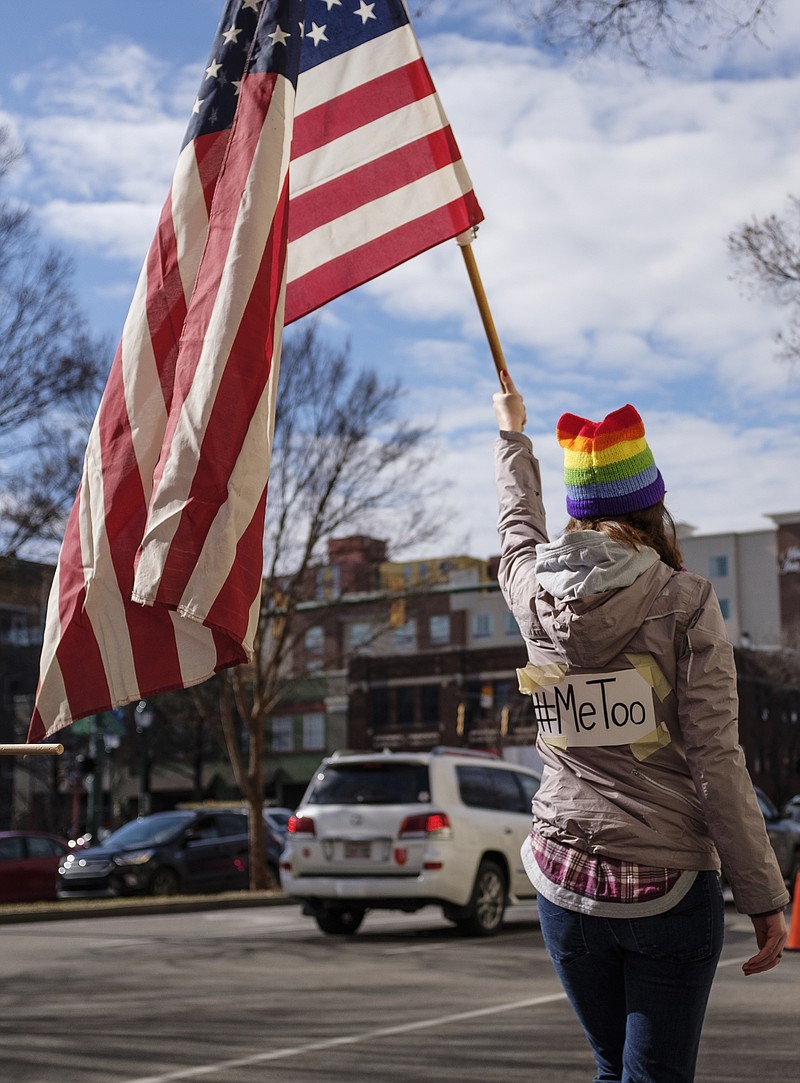During the 2016 presidential campaign, I went to Donald Trump rallies in the Midwest, the South and on the East Coast. At all of them, I'd ask Trump fans what was bothering them about American life. By far the most common reply was: too much political correctness.
People kept complaining that they could no longer say what they really thought. I'd ask what they couldn't say, but they usually wouldn't answer. Then I'd ask who was stopping them, and they inevitably talked about being criticized for their political opinions on social media.
I thought of all those people, embittered and baffled to suddenly find themselves subject to a code of speech and manners that they neither understood nor consented to, as I read Katie Roiphe's essay in Harper's Magazine, "The Other Whisper Network: How Twitter Feminism Is Bad for Women," which faults parts of the #MeToo movement for excessive hostility toward men, and for accepting all accusations at face value. In it, she also thought about Trump voters, but she compares them to furious online feminists: "Twitter, especially, has energized the angry extremes of feminism in the same way it has energized Trump and his supporters: The loudest, angriest, most simplifying voices are elevated and rendered normal or mainstream."
Well before it was published, Roiphe's essay provoked outrage on the feminist internet because of reports that she was going to out the anonymous creator of a crowdsourced document about sexual misbehavior by men in media. (The list's creator, Moira Donegan, has since gone public, writing that she learned the magazine was planning to identify her when she was contacted by a Harper's fact-checker.)
In the piece, Roiphe says that ordinarily outspoken professional women insisted on anonymity before they'd admit to her that they feel conflicted about the current sexual harassment reckoning. She quotes one woman as saying, "I think there is more regretted consent than anyone is willing to say out loud." Another says: "Why didn't I get hit on? What's wrong with me?"
Some of the sentiments Roiphe describes are similar to things I've said in private conversations myself. I understand the hesitation to say them publicly, because it's unpleasant to be jeered at on the internet by self-righteous young people. But Roiphe, like the Trump rallygoers, makes a category error in conflating criticism - even harsh, ugly criticism - with oppression. The social justice left is often accused of putting feelings over facts. But its critics, in many cases, are just as unwilling to distinguish feeling silenced from actually being silenced.
Having run afoul of a Twitter mob or two myself, I know that a virtual mob isn't the same as a live one. The torches aren't real, and in some cases neither are the people.
This is important to remember, because social media can obscure the power dynamics of the offline world. It's democratizing up to a point, for good and ill - it can give a platform to traditionally marginalized people, and allows all of us to be judged and insulted by masses of strangers. But influence on Twitter doesn't necessarily translate to influence elsewhere.
Faced with thousands of incensed Twitter users, you might feel it's dangerous to say that #MeToo has gone overboard, but in the real world the men who still run things will congratulate you for your courage. Left-wing Twitter mobs are a great gift to the right, since they make defending the status quo seem transgressive and brave.
"Can you see why some of us are whispering?" Roiphe asks in her Harper's piece, citing angry things Donegan has written online. "It is the sense of viciousness lying in wait, of violent hate just waiting to be unfurled, that leads people to keep their opinions to themselves, or to share them only with close friends."
Certainly, social media is a grotesque netherworld of bad faith and cruelty. But as ugly as the intellectual environment is online, if people are truly whispering their discomfort with #MeToo, why are they so easy to hear?
The New York Times
